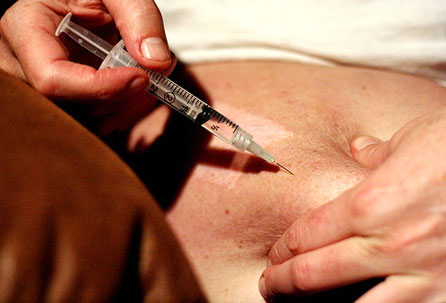
Stomach Surgery for Ulcers
Stomach ulcers also known as gastric ulcers are fairly common in the UK, but fortunately surgery to remove them is not. Stomach surgery for ulcers in the past was the usual way to remove and rid a patient of ulcers; thanks to the advances in medical science professionals have invented non-surgical methods for the removal of ulcers. Acid supressing drugs and antibiotics are now sufficient treatment for most ulcers however there are some stomach ulcers that develop complications and require surgery to remove.
What is a stomach ulcer and how is it caused?
A usual stomach ulcer is caused through infection with a germ known as H.pylori, an ulcer forms when there is an alteration in the balance of the amount of acid that the stomach produces and the mucus barrier that is designed to protect the lining of the stomach.
Infection is the main cause of stomach ulcers and makes up around eight cases in ten; some people do not require ant treatment as they suffer no discomfort but if left untreated the infection will remain for life.
Another cause of stomach ulcers is the use of anti-inflammatory drugs such as aspirin and ibuprofen. Although good for many purposes these drugs can sometimes affect the mucus barrier and allow acid to form an ulcer. Crohn’s disease is also known to have caused stomach ulcers but only on rare occasions.
Surgery to remove an ulcer
Surgery is rare in most ulcer cases but there are still times when stomach surgery for ulcers is required. Modern day stomach surgery for ulcers uses a technique that involves laparoscope; the laparoscope is thought to be safer and also promotes faster healing. Surgeons will use a telescope and camera along with small instruments with the aim of removing any malignant tumour. Some occasions may require that part of the oesophagus or duodenum is removed to prevent the ulcer from ever returning.
In ulcers known as peptic ulcers the operation will be to stitch up any bleeding or remove the acid that controls the lower part of the stomach so that the ulcer can heal, this is helped through the use of drugs.
The main benefit of surgery is stopping bleeding or to seal the ulcer, surgery can also be beneficial for removing any malignant disease.
After stomach surgery
In the immediate aftermath of surgery the patient is likely to be in some discomfort and may suffer from soreness and swelling on part of the abdomen that has been stitched. Like any form of surgery there is the risk of complication afterwards. Early complications with stomach surgery for ulcers can occur almost immediately after the operation and while the patient is still in hospital, these may include:
- Infections in the wound
- A reoccurrence of bleeding in the ulcer
- Anastomotic leaks
Not every person that undergoes surgery to remove an ulcer will suffer from complications although it is possible that 25%-50% will, of the people that do suffer complications only 1%-5% will find the problem major.
